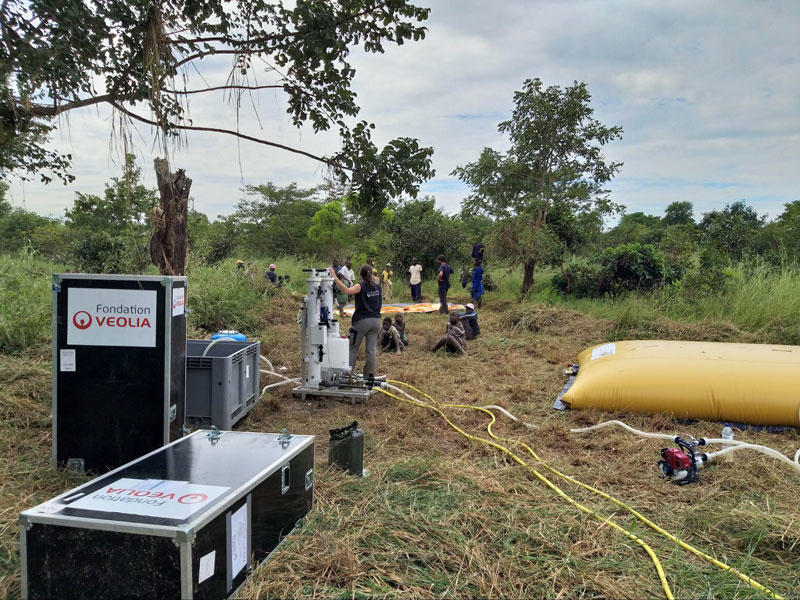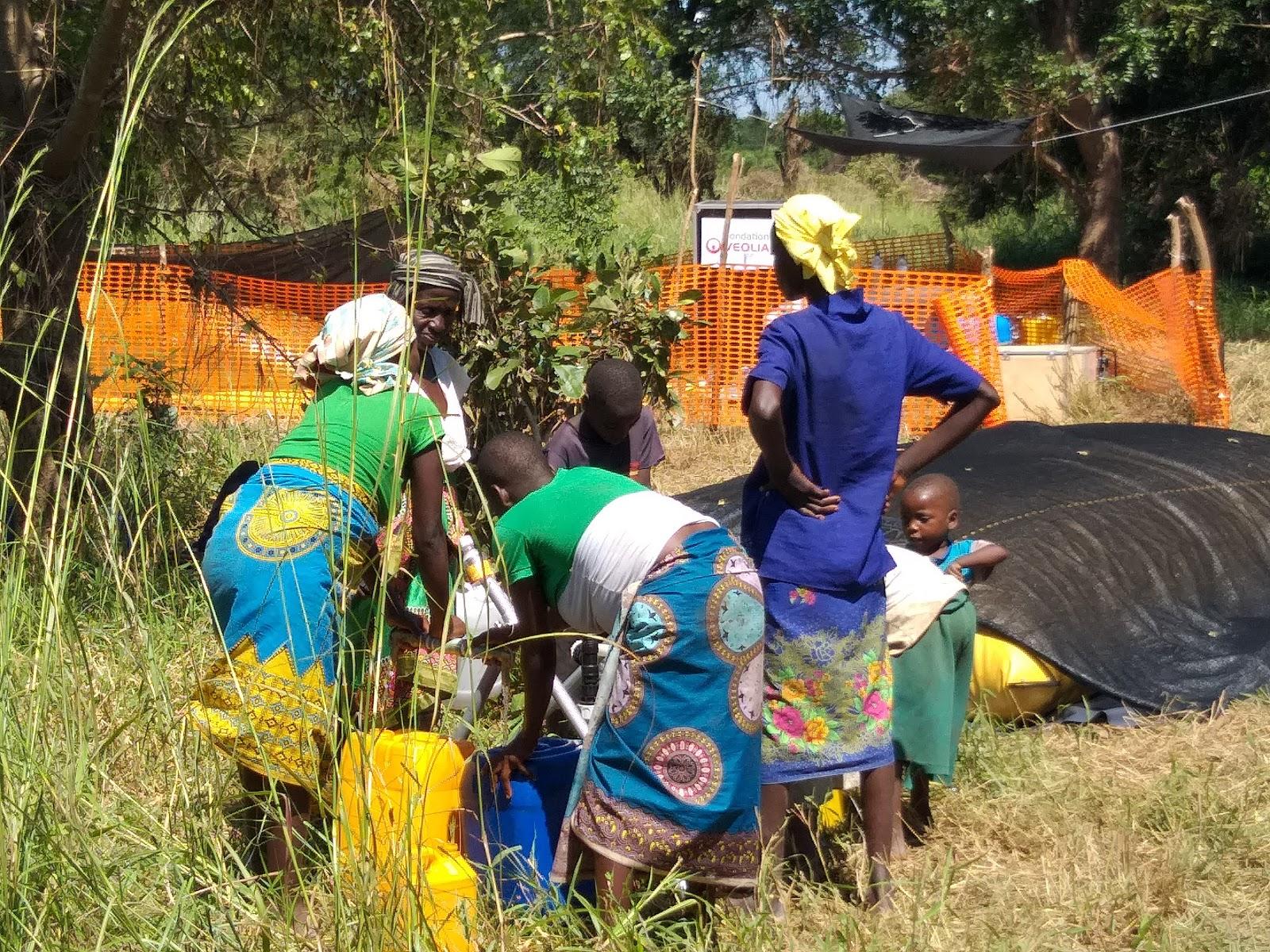
You were asked to go on this Veoliaforce volunteer assignment. How do you prepare for travelling to a humanitarian emergency situation?
Camille Beaupin: You obviously need to plan ahead as you will be away from both work and home, and you need to be in a position to be responsive and fly out the very next day. Once the practical arrangements have been sorted out, you can fully devote yourself to your role.
I had never worked in a post-humanitarian disaster context before, so I found arriving on the ground slightly disconcerting. Many humanitarian aid workers were on the ground and coordination is done as well as possible, but information transfer is not always perfect. I discovered what goes on "behind the scenes" in humanitarian work over the first few days. It's a job in itself - identifying needs, tailoring resources, sharing out equipment etc.
You teamed up with a permanent member of the Foundation's staff and set up an Aquaforce 2000, the mobile drinking water purification unit designed by the Foundation's engineers, working with MSF.
CB: Yes, several dozen kilometres from Dombé to the west of Beira. We needed to pinpoint the best water supply point and organise access to the distribution systems that we wanted to set up as close as possible to the local communities, i.e. 1km of piping had to be laid in the open country.

How did you get on with the local population?
CB: Because we were producing water with equipment that was unknown to the Mozambicans, we had to adopt an educational approach, drink the water from the Aquaforces, and, in a general sense, explain what we were doing. But above and beyond our work as Veoliaforce volunteers, the local communities were very dynamic, despite the tragedy that had occurred. People are resilient and are already looking to rebuild in a relatively independent way. It was impressive stuff and I did at times wonder how we would react in France if faced with this sort of disaster...
What surprised you the most during this assignment?
CB: Volunteers need to be flexible to deal with the contingencies. The situation changes every day, everyone wants to do their best but has to coordinate with the other stakeholders involved. And then you are in contact with contacts abroad, without always grasping that it is actually the weekend elsewhere in the world and decisions will only be taken on Monday. The concept of time is different in humanitarian emergencies.

